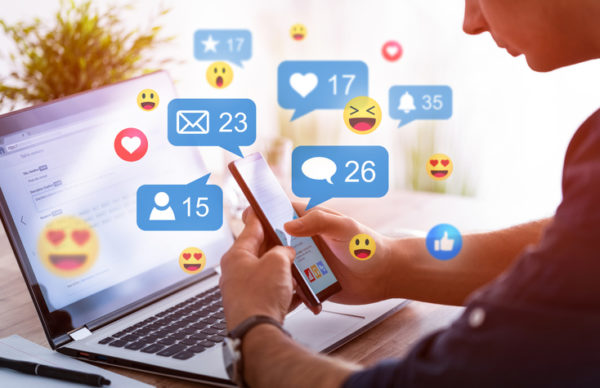A Quick Guide
Today, 4.62 billion people use social media worldwide. Social media use lasts, on average, 2 hours and 27 minutes every day. Which in hindsight is a lot, especially when there are no limitations or checks on it. This mostly has negative effects on teens. In today’s day and age, the average person spends quite a lot of time on social media. And while it may have positive outcomes too like connecting us to our friends and families. We know it has more negative effects. The problem is that social media giants are evolving at such a rapid pace that we are unable to measure the effect they have on our thoughts, feelings, and behaviors as quickly.
How does social media affect our mental health?
So it kind of works as a reward system. The nature of social media is to reinforce Dopamine, a “feel-good hormone” associated with enjoyable activities like sex, eating, and socializing. Dopamine is released when social media is used, activating the brain’s pleasure and reward area. But the content we come across invokes negative feelings in us. Hence, these platforms are linked more to bodily problems like depression and anxiety.

So then why do we keep returning to social media even when it harms us? Simply because they are made to be addictive.
The likelihood of repeating a behavior increases when the consequence is unknown. Consider a slot machine: If players knew they would never win money by playing, they would never engage in the game. Simply due to the possibility of a future payout, the machines are kept in use.
Social media websites are no different. One cannot predict the number of likes a photo will receive, who will “like” it, or when it will do so. This is why we remain interested in the websites due to the likelihood of a desirable consequence as well as the unpredictable outcome.
Watch: [Social Media Depression]
The need for Validation & FOMO?
Usually what happens is that we need this sort of validation. It helps in boosting our self-esteem and makes us feel a sense of belonging in our social circles. We hope that we would receive positive feedback in the form of likes and comments. Now since we have this possibility of a reward, it reinforces our behavior to constantly keep checking these platforms. Then when we see other people’s activities, we start comparing ourselves to them. We think “why did I not get as many likes as them, on this photo?’’.
So it’s like this whole vicious cycle.
Another factor is FOMO, which is the fear of missing out. There is anxiety that if someone doesn’t use social media sites when everyone else is, they may miss jokes, links, or invites. Anxiety and melancholy can be brought on by missed opportunities. People’s emotions, feelings, and physical well-being can all be impacted when they discover they aren’t included in an activity online.
The link between social media, depression & poor life quality
In fact, a study at Pennsylvania University has shown a causal link between social media and feelings of loneliness and depression. 143 undergraduate students participated in the study. They were divided into two groups randomly. One group would continue using social media as usual and the other group would have much less access to it. Those who used less social media had better mental health outcomes.
Furthermore, In 2018, a British study found a link between social media use and sleep disruption, which is linked to sadness, memory loss, and subpar academic performance. Even more directly, using social media can have an impact on users’ physical health. Researchers have shown that anxiety and sadness can manifest physically as headaches, nausea, tremors, and muscle tension.
Safe Use of Social Media
So all of this begs the question, how can we safely use social media? Experts suggest using these social media sites carefully and in moderation.
When using social media, set a timer or download a timer app for your computer or smartphone to keep track of how much time you spend there.
You can schedule offline activities that help you concentrate on your current surroundings and circumstances in addition to setting a time limit on your social media usage. Read a book, see a movie, take a walk, play a game, or talk to a friend. Make time to relax and take it easy.
We hope you found this article useful in understanding the link between social media and depression. To learn more about how overexposure to media affected people during Covid-19, check out our other article: Overexposure To Covid-19 Media And Its Psychological Effects.
Learn more about 7 Signs Of Depression In Teens: How To Recognize & Treat Them


